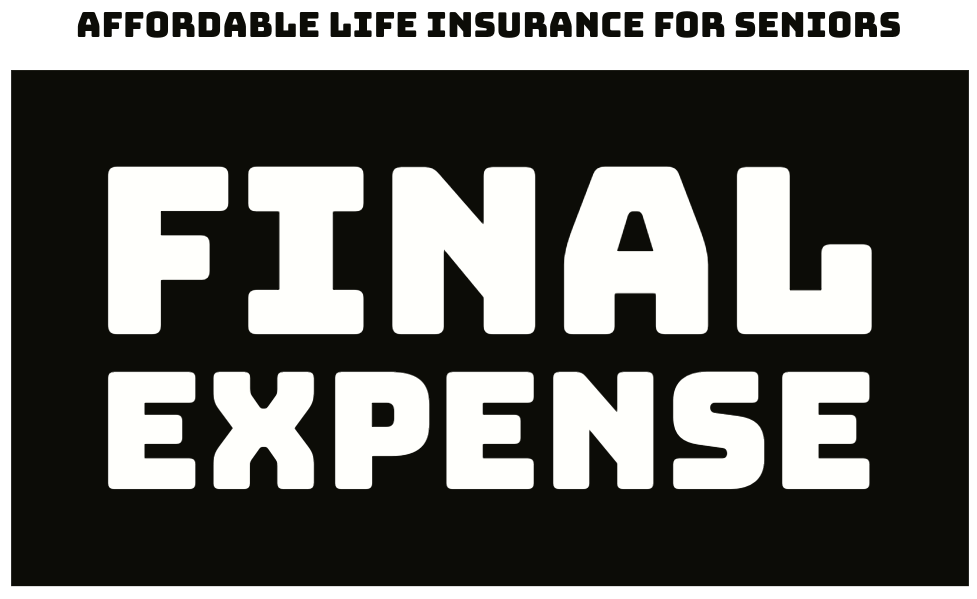Burial insurance for seniors covers funeral and end-of-life expenses, easing financial burdens on families. In this article, we’ll explain what it covers, available policy types, and how to choose the best one.
Key Takeaways
-
Burial insurance is specifically designed to cover funeral and end-of-life expenses, providing financial relief for seniors and their families.
-
There are various types of burial insurance policies available, including simplified issue, guaranteed issue, and pre-need plans, each catering to different needs and health situations.
-
Choosing the right burial insurance provider is essential; top companies in 2025 include Mutual of Omaha, AARP/New York Life, and State Farm, each offering unique features and coverage options.
Understanding Burial Insurance for Seniors

Burial insurance, or final expense insurance, is a type of whole life insurance tailored to cover funeral and end-of-life expenses. Unlike traditional life insurance, which often provides substantial death benefits to replace lost income or cover large debts, burial insurance addresses smaller, immediate financial needs. This type of policy helps seniors relieve the financial burden on their families when they pass away.
Burial insurance aims to cover funeral costs, burial expenses, and other end-of-life costs, preventing financial strain on loved ones. Understanding the various coverage options and assessing your individual needs before purchasing a policy can help you make an informed decision that aligns with your financial situation and personal preferences.
The following sections will explore what burial insurance covers and the types of policies available.
What Does Burial Insurance Cover?
Burial insurance covers a variety of end-of-life expenses, offering financial support for loved ones. These costs often include:
-
Funeral arrangements, which can be expensive, ranging from the casket and burial plot to the funeral service and transportation
-
Medical bills incurred in the final days of life
-
Any outstanding debts, such as personal loans or credit card balances
Final expense insurance policies may also cover legal fees and estate administration costs, ensuring your affairs are settled without additional burden on your family.
For those without other means to finance these expenses, burial insurance provides an effective way to manage these inevitable costs. Understanding what these policies cover can help you prepare for the future and ensure your loved ones are not left with unexpected financial obligations.
Types of Burial Insurance Policies
Various types of burial insurance policies cater to different needs and circumstances. Simplified issue burial insurance requires applicants to answer a few health-related questions but does not mandate a medical exam. This type of policy is often faster to obtain and provides coverage without extensive health screening.
Guaranteed issue whole life insurance offers guaranteed acceptance without health questions or medical exams. This life insurance policy is particularly beneficial for seniors with pre-existing health conditions that could make qualifying for other types of life insurance difficult, including a life insurance plan.
Pre-need plans cover specific funeral services chosen by the policyholder in advance, ensuring their exact wishes are met when the time comes. Understanding these different types of burial insurance policies can help you choose the one that best fits your needs and circumstances.
How Burial Insurance Works for Seniors

Burial insurance provides a death benefit to cover end-of-life costs, typically without requiring a medical exam, making it accessible for many seniors. These policies are straightforward and easy to understand, ensuring seniors can secure coverage without unnecessary complications.
The process involves applying for a policy and understanding the conditions under which payouts are made. Knowing how these policies work can help seniors make informed decisions and ensure their families are protected from the financial burdens of end-of-life expenses.
Application Process
Applying for burial insurance is generally straightforward, requiring basic personal information such as age, health status, and the desired coverage amount. Some policies may ask a few health-related questions, while others, like guaranteed issue policies, do not require any health screening, making the process accessible and quick, particularly for seniors with health concerns.
To apply, you need to provide details about your beneficiary, who will receive the death benefit. This process can often be completed online or with the help of an insurance agent, ensuring you get the coverage you need with minimal hassle.
Understanding the application process can help you better prepare and ensure a smooth experience when securing your burial insurance policy.
Payout Conditions
Payout conditions are crucial in burial insurance policies. Many policies have a waiting period before the full death benefits are paid out, especially for guaranteed issue plans. For example, if the policyholder passes away within the first two to three years of the policy, the payout may be limited to the premiums paid plus interest, rather than the full death benefit.
For guaranteed issue life insurance, this waiting period can extend up to 36 months. These graded death benefits protect the life insurance company from immediate large payouts and offer a scaled benefit that increases over time.
Knowing these conditions can help you choose the right policy and ensure your beneficiaries receive the intended support when it is needed most.
Top Burial Insurance Companies for Seniors in 2025
Selecting the right burial insurance provider ensures you get the best coverage and service. In 2025, top burial insurance companies for seniors include Mutual of Omaha, AARP/New York Life, Colonial Penn, Gerber Life, State Farm, and Transamerica. These life insurance companies have been evaluated based on their coverage options, customer service, and overall reliability.
When choosing a provider, consider factors such as average premiums, coverage limits, and additional benefits like will and estate planning tools. Each of these companies offers unique features and benefits, so compare their offerings to find the best fit for your needs.
The following sections detail each of these top providers.
Mutual of Omaha
Mutual of Omaha offers burial insurance coverage ranging from $2,000 to $25,000. Their policies, available for individuals aged 45 to 85, do not require health questions or medical exams, making them accessible to many seniors. This guaranteed whole life insurance covers end-of-life expenses, providing financial security for your loved ones.
Known for its customer service and reliability, Mutual of Omaha is a top choice for many seniors seeking dependable burial insurance. Their straightforward application process and guaranteed acceptance make it easy to secure coverage.
AARP/New York Life
AARP, in collaboration with New York Life, offers burial insurance policies with coverage up to $30,000. Available to AARP members aged 50 to 85, these policies do not require a medical exam or health questionnaire, simplifying the application process. AARP/New York Life has a low volume of consumer complaints and a solid reputation for customer satisfaction.
While coverage is not available in New Jersey, it is offered in all other U.S. states and Washington, D.C. AARP/New York Life’s policies provide financial security and peace of mind, making them a strong contender for seniors seeking burial insurance.
Colonial Penn
Colonial Penn offers burial insurance coverage ranging from $1,000 to $25,000, providing a flexible option for many seniors. Their guaranteed approval whole life insurance does not require medical exams or health questions, although some policies may still ask a few health-related questions.
However, Colonial Penn has a higher-than-average NAIC Complaint Index score, indicating more consumer complaints than expected. Despite this, their policies are accessible to individuals aged 50 to 85, offering a viable option for those seeking guaranteed coverage.
Gerber Life
Gerber Life offers guaranteed life insurance policies with coverage ranging from $5,000 to $25,000. These policies are available to seniors aged 50 to 80, with an age limit of 75 in New York. A key feature of Gerber Life’s policies is the graded death benefit, ensuring beneficiaries receive a portion of the death benefit if the policyholder passes away within the first few years of the policy.
Gerber Life’s policies also accumulate cash value over time, providing an additional financial benefit for policyholders. This makes Gerber Life a solid choice for seniors seeking a combination of coverage and financial growth.
State Farm
State Farm is renowned for its exceptional customer satisfaction, consistently ranking high in J.D. Power’s customer satisfaction studies. Their burial insurance policies generate dividends based on the company’s financial performance, potentially providing additional financial benefits to policyholders.
State Farm’s burial insurance is available nationwide, except in Massachusetts and Rhode Island. With a strong reputation for customer service and fewer complaints compared to competitors, State Farm is a reliable choice for seniors seeking burial insurance.
Transamerica
Transamerica offers an instant approval process for its burial insurance policies, allowing applicants to receive decisions within minutes. Their policies include a benefit limit of $25,000 for individuals aged 76 to 85 and provide access to funeral planning tools, which can be a significant advantage for seniors planning ahead.
Focusing on convenience and quick approval, Transamerica stands out as a practical option for seniors seeking burial insurance coverage without lengthy application processes.
Cost of Burial Insurance for Seniors
The cost of burial insurance for seniors varies significantly based on factors like age, health history, and lifestyle choices. Typical coverage amounts range from $1,000 to $50,000, with the most common being around $25,000. These policies cover final expenses, ensuring loved ones are not left with a financial burden.
Knowing the factors that influence the cost of burial insurance can help seniors make informed decisions and select a policy that fits their budget and coverage needs.
Factors Influencing Cost
Before:
Several factors influence the cost of burial insurance. Age is significant, with younger applicants generally enjoying lower premiums. Gender also plays a role, as female applicants often pay lower rates than males. The desired coverage amount directly impacts the premium, with higher benefit amounts leading to increased costs.
After:
Several factors influence the cost of burial insurance:
-
Age – Younger applicants generally enjoy lower premiums.
-
Gender – Female applicants often pay lower rates than males.
-
Desired coverage amount – Higher benefit amounts lead to increased costs.
For example, an 80-year-old male might pay around $197 monthly for a final expense policy worth $10,000. Understanding these factors can help seniors choose the right policy and manage their financial planning effectively.
Sample Quotes
To give you a practical idea of the costs, here are some sample quotes for burial insurance. A 70-year-old female might pay around $80 per month for a $25,000 burial insurance policy. Monthly premiums for a $25,000 policy can range from $50 to $100 depending on age and other factors.
These quotes can vary based on individual circumstances, so it’s always best to request personalized quotes from insurance providers to get an accurate estimate.
Is Burial Insurance Worth It for Seniors?

Deciding whether burial insurance is worth it for seniors involves weighing the benefits against the potential drawbacks. Burial insurance provides financial security by covering final expenses, which can significantly ease the burden on families during a difficult time. These policies are generally less expensive than traditional life insurance and offer guaranteed approval without a medical exam, making them accessible to many seniors.
However, it’s important to consider that burial insurance can be more expensive per dollar of coverage compared to policies that require medical exams. Evaluating your specific needs and budget is crucial in determining if burial insurance is the right choice for you.
Benefits of Planning Ahead
Planning ahead with burial insurance can provide significant benefits. It can alleviate financial stress for family members by ensuring that funeral costs and other end-of-life expenses are covered. By arranging your funeral in advance, you can clearly express your wishes, reducing potential familial disputes and easing the emotional burden on loved ones during their time of grief.
Moreover, pre-arranging your funeral can also lock in current prices, potentially saving money in the long run. This foresight can provide peace of mind, knowing that your family will not face unexpected financial burdens.
Potential Drawbacks
While burial insurance has many benefits, there are potential drawbacks to consider. Policies with guaranteed acceptance often come with higher premiums and limited coverage amounts. Waiting until an older age to buy burial insurance can result in higher monthly rates and a shorter payment duration.
Additionally, some burial insurance policies may be more expensive compared to traditional life insurance options. These factors are important to consider when deciding if burial insurance is the best choice for your situation.
How to Buy Burial Insurance for Seniors

Buying burial insurance involves several steps, from researching providers to completing the application process. Start by gathering necessary personal information, such as identification, health status, and financial details. Research different burial insurance providers to identify their plan options, prices, and customer reviews.
Once you have chosen a provider, complete the application by accurately filling in all required information. Consulting with an insurance agent who specializes in burial insurance can simplify this process and help identify the best plans.
Researching Providers
When researching burial insurance providers, it’s crucial to evaluate their reputation, customer service ratings, and the types of policies they offer. Checking for customer reviews and company ratings can reveal their reliability and service quality.
Look for providers that have transparent pricing and clear policy terms to avoid any surprises later. Ensuring you choose a reliable company that meets your needs is essential to securing the best burial insurance coverage for your situation.
Applying for Coverage
Most burial insurance applications do not require a medical exam, making the process more accessible for seniors. Many insurers allow you to complete the application process online, providing convenience and ease.
During the application, you may need to provide personal information such as age, health status, and desired coverage amount. Consulting with an insurance agent can also help simplify the process and ensure you choose the best policy for your needs.
Summary
In conclusion, burial insurance is a valuable option for seniors looking to cover end-of-life expenses and provide financial security for their families. By understanding the different types of burial insurance policies, how they work, and the top providers in 2025, you can make an informed decision that best fits your needs.
Planning ahead with burial insurance can alleviate financial and emotional stress on your loved ones, ensuring that your final wishes are met without imposing a financial burden. Whether you choose Mutual of Omaha, AARP/New York Life, Colonial Penn, Gerber Life, State Farm, or Transamerica, each provider offers unique benefits and coverage options to consider. Take the time to research and compare policies to find the best burial insurance for your situation.
Frequently Asked Questions
Is burial insurance worth it for seniors?
Burial insurance is worth it for seniors as it offers peace of mind by ensuring that final expenses and outstanding debts are covered, helping to alleviate the financial burden on loved ones. Additionally, the lower premiums and simplified underwriting make it an accessible option for immediate needs.
What expenses does burial insurance cover?
Burial insurance generally covers funeral arrangements, medical bills, legal costs, and any outstanding debts of the deceased. This ensures that loved ones are not burdened with these expenses during a difficult time.
Are there different types of burial insurance policies?
Yes, there are different types of burial insurance policies, including simplified issue, guaranteed issue, and pre-need plans. Each type offers distinct benefits to meet various needs and preferences.
Do I need a medical exam to apply for burial insurance?
You typically do not need a medical exam to apply for burial insurance, as most policies are designed to be accessible for seniors. This allows for easier enrollment and peace of mind regarding coverage.
What are the top burial insurance companies for seniors in 2025?
The top burial insurance companies for seniors in 2025 include Mutual of Omaha, AARP/New York Life, Colonial Penn, Gerber Life, State Farm, and Transamerica. It’s important to compare their offerings to find the best fit for your needs.
